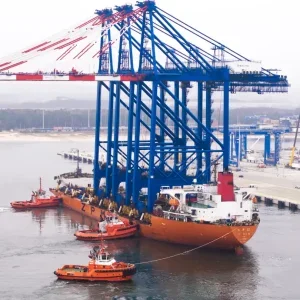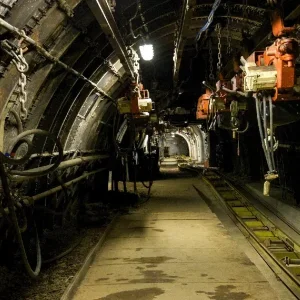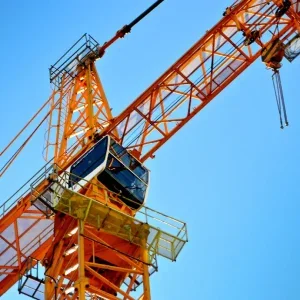Mika Vehviläinen CEO, Cargotec said demand was further increased by the market recovery after last year's difficult pandemic situation and the increase in economic activity that started at the end of 2020.
“Our main demand drivers – number of containers handled at ports globally, construction activity, and the level of new vessel contracting – were all growing strongly in early 2021,” said Vehviläinen.
“Our orders received more than doubled, reaching an all-time record of almost €1.3bn. A strong mobile equipment demand pushed Kalmar's orders received to a record-high level of €600m. Orders for Kalmar's automation solutions remained moderate as customers continue to consider their larger investments carefully.
“Hiab’s demand remained exceptionally strong, with orders received reaching a record number for a third consecutive quarter. MacGregor’s orders received increased by 41% from the comparison period as shipbuilding recovered in both merchant ship and offshore sectors.
“Our order book increased by 43% from the end of 2020, driven by high orders in Kalmar mobile equipment and Hiab. We estimate that, in addition to the strong market, high demand is due to the pent-up demand from last year as well as customers preparing for longer delivery times and price increases.”
Vehviläinen announced sales increased by 13% from the comparison period, although global logistics challenges and component shortages in the supply chain extended delivery times and limited its ability to meet increasing demand.
“The economic recovery from the pandemic is also reflected in the prices of raw materials, components and freight transportation. We are prepared to respond to the situation with price increases and active cooperation with our suppliers. Challenges in the supply chain and the related price increases mainly affected Kalmar’s results,” he added.
“Cargotec’s comparable operating profit increased by 41%, driven by higher comparable operating profit in Hiab. Comparable operating profit increased also in MacGregor while Kalmar's comparable operating profit was at the comparison period’s level.”
The impact of extended delivery times and increased costs will also be seen in the next quarter, but it expects the situation to improve towards the end of the year.
“Our service business developed strongly in the second quarter with service orders received increasing by 27% compared to the comparison period. Service sales grew by 12% and, together with the software business, constituted 36% of our total sales,” said Vehviläinen.
“After the reporting period, in early July, we announced that we had completed the sale of the Navis business to Accel-KKR, a Silicon Valley-based investment firm for an enterprise value of €380m. Accel-KKR has transferred €350m of the enterprise value to Cargotec and, on July 1, 2021, obtained control of Navis' business. The remaining €30m will be transferred to Cargotec by the end of 2021. The proceeds enable further investments in acquisitions and R&D investments in the fields of electrification, digitalisation and automation.”
In October 2020, Cargotec Corporation and Konecranes announced a combination agreement and a merger plan to combine the two companies through a merger. Extraordinary general meetings of Cargotec and Konecranes held on December 18, 2020 approved the merger.
Various competition authorities in the EU, UK, US, and China, among others, are currently reviewing the proposed transaction. In July, The European Commission and Competition and Markets Authority in the UK opened a phase II review in connection with the planned transaction.
“In terms of the European Commission’s phase II review, we expect it to continue during H2/2021. Both Cargotec and Konecranes are confident that the approvals are received to allow completion of the transaction by the end of H1/2022. Until then, both companies will operate fully separately and independently,” added Vehviläinen.
“During this spring, we have refined our strategy and during the second half of the year we will continue our determined investments in sustainable and profitable growth. Our key business driver is to reduce the carbon footprint of the logistics industry. We have continued our product development investments and, during the end of this year, Kalmar’s entire portfolio becomes available as electrically powered versions."






